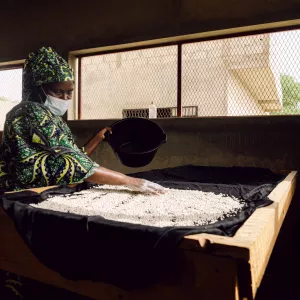A Decade of Research for Development in West Africa
In 2014, a joint bold scientific experiment set out to test how wheat fared against West Africa’s relentless heat. Ten years later, the collaboration has delivered heat-tolerant varieties, empowered thousands of farmers, and transformed agriculture along the Senegal River, inspiring new policies, global recognition, and a wheat revolution across the region. In 2013, the Swedish Research Council and the Swedish

A Decade of Research for Development in West Africa
In 2014, a joint bold scientific experiment set out to test how wheat fared against West Africa’s relentless heat. Ten years later, the collaboration has delivered heat-tolerant varieties, empowered thousands of farmers, and transformed agriculture along the Senegal River, inspiring new policies, global recognition, and a wheat revolution across the region.
In 2013, the Swedish Research Council and the Swedish International Development Cooperation Agency (SIDA) launched the U-forsk program to advance agricultural adaptation to climate change. A team from the Swedish University of Agricultural Sciences (SLU) partnered with ICARDA, the Senegalese Institute for Agricultural Research (ISRA), and Mauritania’s National Center for Agricultural Research and Rural Development (CNRADA) on what many considered an unlikely proposition: cultivating durum wheat along the Senegal River, where crops are constantly stressed by intense heat.
A decade later, that bold idea has reshaped agriculture in the region. Today, more than 30,000 farmers cultivate heat-tolerant durum varieties developed through this collaboration. The project has earned global recognition through the OLAM Prize for Innovation in Food Security, inspired national wheat expansion plans in Mauritania and Senegal, increased by 0.5% their agricultural GDPs, and spurred the release of a heat-tolerant durum variety in Nigeria.
To celebrate 10 years of successful research for development, the project team and its development partners held an event in Uppsala, Sweden, as part of Agri4D to showcase how scientific research can truly promote social development.

